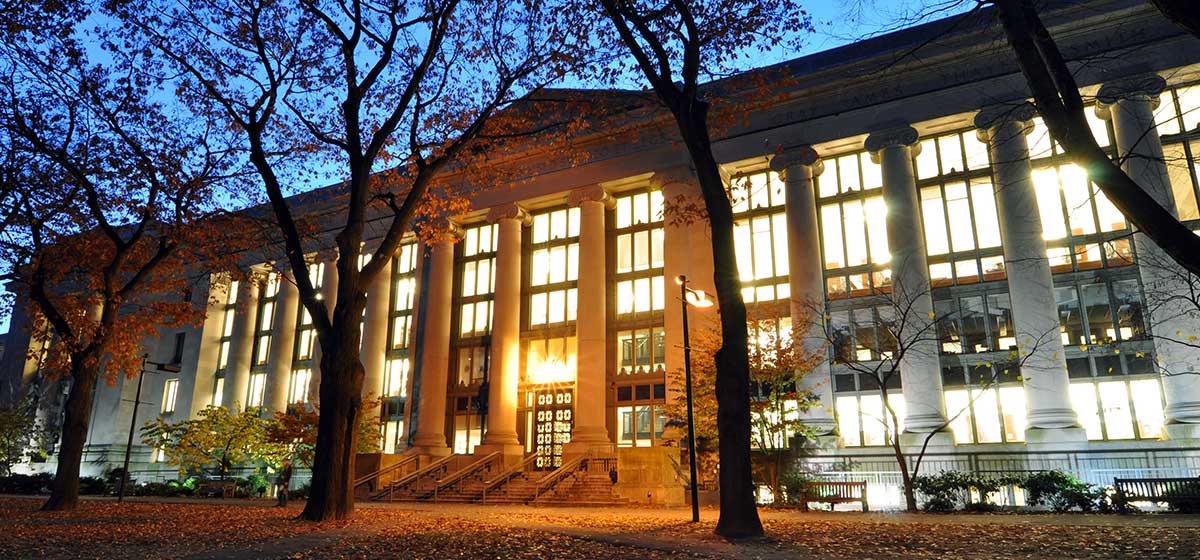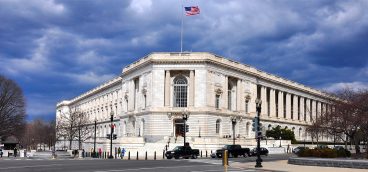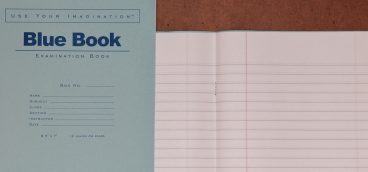The Law Works in Mysterious Ways

After I was mustered out of the army, I reapplied to law school to finish my second and third years. I assumed my readmission would be pretty much automatic, but I was wrong — I was put through the wringer.
Previously in this series: “Joe Biden Saved Me from Pocatello”
Eventually I was required to have an interview with the law school Dean, but given our, uh, unhappy past, I was assigned instead to be interviewed by an assistant dean. I asked the guy why it was so difficult for me to get readmitted. He opened my file and took a long sheet of computer paper off the top of it.
The law school had a nasty practice in those days of tacking up on the wall of the student union a list of every student’s GPA, starting at the top with the valedictorian-in-training and going all the way down to student #552, the poor bastard who ranked at the bottom of the class. The list was there for all to see the first day everybody showed up for their second year.
I had missed out on that terrific experience because I’d gone into the army, but now I had the list in my hand. I studied it slowly for several minutes, my face gradually turning bright red. This moment might have been the inspiration for the classic scene in “Animal House” where the Dean reads off the GPAs of the Delta House members.
I’d finished 126th in my first year class — if you counted up from the bottom.
“Uh, I can explain that,” I said.
It turned out the assistant dean had no idea how I’d taken my first year exams.
“Wait,” he said. “You took exams from professors you hadn’t studied with? And a year later and while you were on active duty? And with a war on?” I nodded. “Unbelievable,” he said. He told me he’d fought in Korea and said, “I guess we’d better bring you back and give you another chance!”
Finally back in Cambridge, I was sitting one day in a corner of the student union, drinking coffee and reading the Boston Globe.
Nearby, four nerdy-type students were talking about their GPAs after their first year. Two had finished in the top quarter of the class and the other two had finished just out of it. They were emphasizing how important it was to graduate in the top quarter.
I couldn’t figure out what was so important about graduating in the top quarter, so I asked around and, unfortunately, found out.
If you graduated in the top quarter of your class, you graduated with honors. Far more important, the best law firms in the country wouldn’t even interview you unless you were in the top quarter.
My heart sank. No matter how good my grades might be in my second and third year, when they were averaged in with my dismal showing from my first year, I would fall somewhere in the middle of the class. That meant I would be scrambling for legal jobs in Pocatello.
My first year had been overshadowed by the knowledge that I would be going into the army right after it. Now my second two years would be overshadowed by the knowledge that, no matter how hard I worked, I was doomed to practice law in Pocatello.
After that, I more or less coasted through my classes, showing up but rarely prepared. Instead, I focused on extracurricular activities. I became an editor of the Harvard Journal on Legislation, which today describes itself grandly as “the nation’s premier legal journal focused on the analysis of legislation and the legislative process.” In my day, we described it as “almost the Harvard Law Review.”
More important, I rejoined the staff of Joseph Hill Associates, a student-run public policy consulting firm. JHA had been started by an undergraduate friend of mine named John. John’s girlfriend, a graphic artist, had created a smashing stationery for us that left the impression we might be a European-based private bank founded in the sixteenth century.
At the bottom of the letterhead, the girlfriend had listed our “offices” like this:
Cambridge, Massachusetts
New York Chicago London Singapore
No, we didn’t really have offices in those cities, but there were former staff members who lived in those places and who sometimes worked as stringers for JHA, so it wasn’t a complete fabrication.
We looked so good on paper that not a single client ever guessed Joseph Hill Associates was named for Joe Hill, the old Wobbly, who was executed for a murder he might or might not have committed, thereby becoming a martyr to the union cause. One of Pete Seeger’s most popular songs was “I Dreamed I Saw Joe Hill Last Night.”
There were other odd things about Joseph Hill Associates. For one, we only worked for liberal politicians. If a politician called us up and was suspiciously centrist in outlook we would argue long into the night about whether the pol “deserved” to work with JHA. A conservative? Forget it.
For another thing, we didn’t charge for our services. We wanted to work for liberals, even if they were only township commissioners in Kansas, and we didn’t want to price ourselves out of the market.
Very late one Tuesday afternoon I had just completed the two-hour waterboarding exercise more familiarly known as Professor Casner’s class on estates and trusts. As usual, I had a splitting headache and was gulping down aspirin — I didn’t go anywhere near Professor Casner’s class without aspirin.
I walked across the quad to JHA’s tiny, cramped office and, as I entered, a young woman staffer was just hanging up the phone and rolling her eyes.
“What’s up?” I asked.
“So the guy says to me,” she said, “‘I’m all for this bill but I don’t know anything about it.’ Really, could anybody who’s not a politician even speak such a sentence?”
“Who’s the pol?”
“Did you ever hear of” — she consulted her notes — “Joe Biden?”
“Nope.”
“He says he’s a United States Senator from Delaware.”
“Please give him my condolences.”
She tore her notes off the legal pad and handed them to me. “You tell him,” she said. “He’s your client.”
Next in this series: “The Senator’s Big Idea: Joe Biden Saved Me from Pocatello, Part III”





